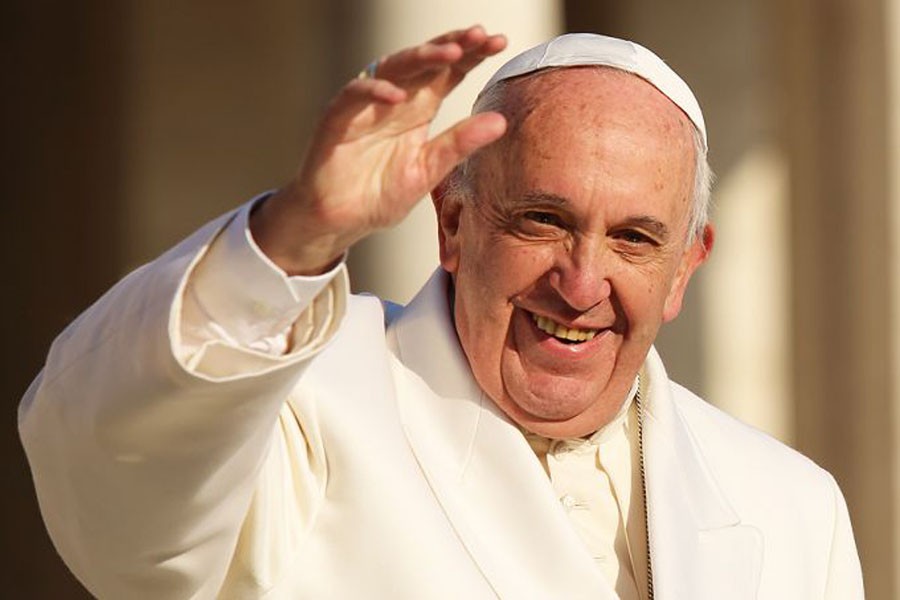A papal visit to Bangladesh transcends far beyond the Catholic highest pontiff's physical presence on this land --both spiritually and symbolically. He represents one of the three Christian churches but the Catholic at the Vatican has its aura unchallenged by the Orthodox or Protestant churches. The three-day visit of Pope Francis, only the second after Pope John Paul's in 1986, is a clear indication of the utmost significance it carries. Particularly, his visit to Myanmar followed by his arrival to Bangladesh has brought to the sharpest possible focus one of the history's greatest tragedies involving forced mass eviction of people. While visiting Myanmar, he maintained the protocol on request from Myanmar authorities not to use the word 'Rohingya' but he made it quite clear that he did not like the Myanmar government's ethnic cleansing drive of the Rakhine inhabitants. He stood his ground all the same by telling the Myanmar authorities that it was against human values and irrespective of religious faith everyone has the right to live in peace and with dignity.
In Bangladesh, Pope Francis felt free to clear his breast off and on the second day in and inter-religious congregation at Kakrail Catholic Church, he did not only mention the Rohingya but also met a team of 16 Rohingya representatives. The Pope expressed his deep sorrow for not doing enough to safeguard the interests of the Rohingya by the international community. On behalf of all, he asked forgiveness from them. He, however, told them that they must not feel left alone. Speaking on behalf of the civil society, Professor Anisuzzaman observed that the religious minorities in many places around the world are suffering persecution and discriminations. He commented that the minorities are not minorities it is the persecutors who are. The Pope could not have agreed more. Clergies and priests from other religions also echoed the sentiment calling for mutual understanding and cooperation between followers of different faiths. Then the Pope led a prayer at a mammoth gathering of Christians at Suhrawardy Uddyan where the Almighty's blessings were sought for making the world peaceful and full of love.
Here is a Pope who does not only reach out to the oppressed and persecuted but also to the poor and vulnerable. The distinguished spiritual leader at times sounds like an adherent to socialism where he blames political corruption, destructive religious ideologies and an unpardonable attitude of indifference to the poor and vulnerable. He is quite aware of the adverse impacts of climate change Bangladesh is subjected to, courtesy of the rich world's indiscrete actions. The highest Vatican clergy's concern is a proof that he cares for people who are at a disadvantage the world over.
The Pope, of Argentine origin, has been a witness to poverty and social discrimination in his native country. His mission for the cause of humanity has elevated him to the top most spiritual position of Catholic Christianity. But he remains as humble as a man with a holy avocation can do. Among other interests, his love for football only makes him more endearing than otherwise could do to people everywhere. The people of Bangladesh were privileged to welcome him and he has declared his solidarity with them unequivocally.


